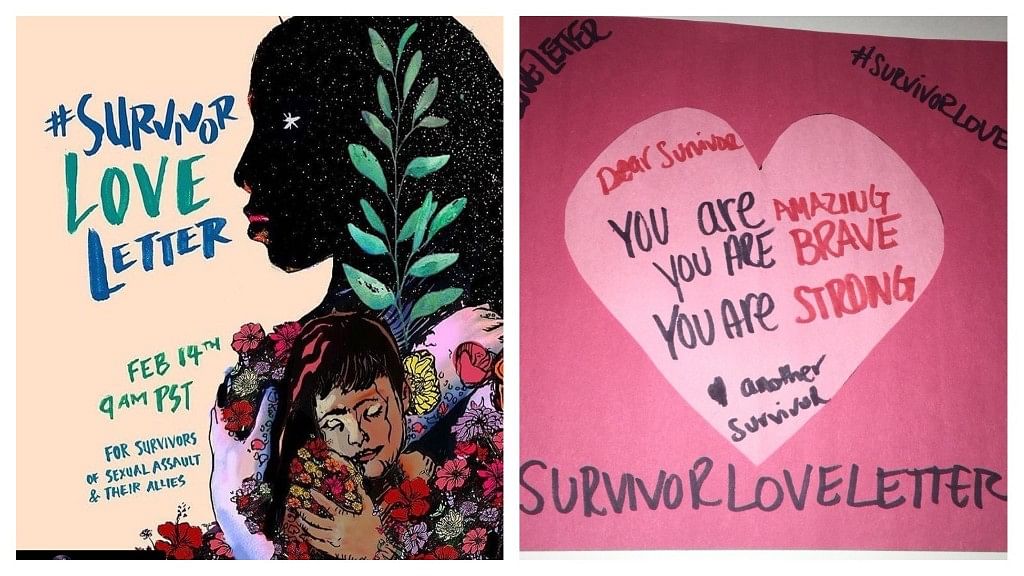‘Surviving Isn’t Always Poetic’: Love Letters From Twitter
“Dear survivor, I wish you the space to release and heal the trauma we store in our bodies.”

“You are not alone.”
“No, you aren’t.”
“You’ve gotten this far. You’ve survived. And you shall keep at it.”
The words were not whispered among confidantes, or uttered nonchalantly in a therapist’s office. They were asserted, with much conviction, over and over again. ‘Survivors’ were reassured, on 14 February, that we’ve got their back.
The hashtag ‘SurvivorLoveLetters’ took over the online community on Valentine’s day, and had thousands of people coming together in solidarity with survivors of sexual abuse.
Letters assuring survivors that they don’t owe anyone their story.
Letters stating that there will always be more displays of courage than there will be of victim-blaming.
Letters affirming that there’s no “right way’’ to fight back.
To each story, its own.
In 2015, the hashtag was first created by Tani Ikeda, a filmmaker, who did so in order to convey the “act of defiance, a declaration of self-love, and a call to allies to honor the survivors in their lives.” This year, there was no stopping them when countless people took to Twitter, revamping the call for support and solidarity on Valentine’s Day.
There is no template that should guide you to a scorecard that grades your culpability. You’ve fought and you have survived. That’s that. Fierce, untamed and angry, the affirmations minced no words, reiterating that it is okay to break free of the “perfect survivor” narrative that instructs one how to fight, resist and conform to the shoulds and shouldn’ts.
‘’We are allowed to be angry, to be loud, to be unforgiving, to be furious.’’
(At The Quint, we are answerable only to our audience. Play an active role in shaping our journalism by becoming a member. Because the truth is worth it.)